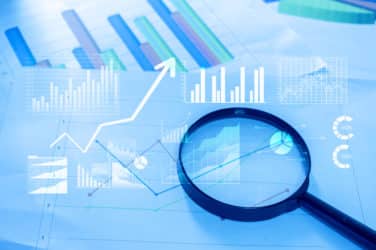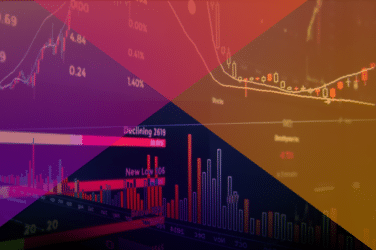CEO Chat with BMLL Technologies: Making Deep-Dive Data Accessible
It is a well-known fact that capital markets firms need to focus on data, analytics and insight in order to create alpha. This focus on data has gone so far that some have even taken to calling it a ‘data revolution’ or ‘data wars’, while Accenture has labelled the task of data-driven management as “turning dark data into business impact”. We spoke to Johannes Sulzberger, CEO of BMLL Technologies, about how firms can efficiently increase their data analytics capabilities without incurring excessive overheads.
Tell us about BMLL Technologies? What does it provide?
BMLL Technologies is a Data-Engineering-as-a-Service company for Capital Markets. BMLL provides firms with access to massive limit order book data sets through cloud computing services.
Leveraging the underlying data science platform, we have developed a derived data product where we can calculate an unlimited number of bespoke derived data metrics and deliver those to customers in a multitude of ways. Customers can focus on the output and let BMLL manage the tech environment themselves. We offer summary statistics and derived data from the most granular data sets available, providing access to insights that have not been easily accessible before and deliver these in a simple, consumable product. Basically our platform combines data, hardware and analytics, and is designed to allow quants, traders, business analysts and compliance staff to go ahead and do their work.
What makes BMLL Technologies different?
Imagine trying to analyse all the trades, orders, messages and data broadcasts across every exchange. There are insights to be gained from looking at that granular level of data, but up until now only a very small number of firms have had the means (and budget) to access it. The BMLL platform aims to level the playing field and provide access to Level 3 (L3) data for market participants, their research and quant teams.
L3 data displays all individual messages in the limit order book (LOB), providing traders and researchers with unparalleled visibility into the workings of the market. These datasets are extraordinarily large and complex, so most firms don’t have the computing infrastructure to derive meaningful analytics from them. Our Derived Data capability can typically process hundreds of billion messages in a matter of hours rather than days. Data sets are primarily equities from US, European and some Asian trading venues, exchange traded derivatives. Based on client demand, however, we can add new data sets quickly and easily and we are starting to push in fixed income and FX spot markets too.
While some big firms do have access to data, we have found that the combination of data, analytics and the scalable compute power necessary to efficiently extract value is very rare. Quant researchers want access to the complexity of the order book condensed into simple metrics. BMLL enables access to both raw and derived data through a range of mechanisms with advanced quant users accessing the platform using Jupyterlab, a popular data science interface.
What can be gained by looking at L3 data? Why is this level of detailed data important for companies?
Quants are on the look-out for either unique trading signals, fraud detection, or market impact and associated costs of a trade. In order to analyse markets and interact with exchanges in the best way, it is important to understand the data produced by exchanges. For example, in the Equities world, L3 data comes from 14 US exchanges and 10 major European exchange groups; each dataset is large, cumbersome and in a different format.
In order to realise the value contained in the exchange data, it needs to be extracted and put into context. BMLL makes this detailed data accessible to the whole market and takes all messages from the full order book to be normalised and compressed. This data can then be analysed using state-of-the-art computing power via the Cloud. Once this derived data is summarised down at scale, new insights can be gained because they can see data sets they have not had access to in the past.
Who are your users?
We currently have 12 Tier-1 institutions on our books including investment banks, global asset managers, sophisticated hedge funds and academic research institutions.
Can you tell us something about the company’s background?
BMLL is spun out of the Engineering Department of Cambridge University. The last five years have seen significant developments both in customer use cases and in the technology stack available to tackle such big-data problems. The original concept of our platform was borne out of trying to solve for the pain that industry users feel when trying to access, manage and extract value from limit order book data.
Do academics still help?
Absolutely. We are very proud to have a scientific advisory board with some of the world’s best-known academic leaders in the field of financial data and machine learning. Together with our research team they look to provide answers in the fields of liquidity resiliency, price impact, predatory trading and the combination of high and low frequency data where we base our work on rigorous academic analysis.







